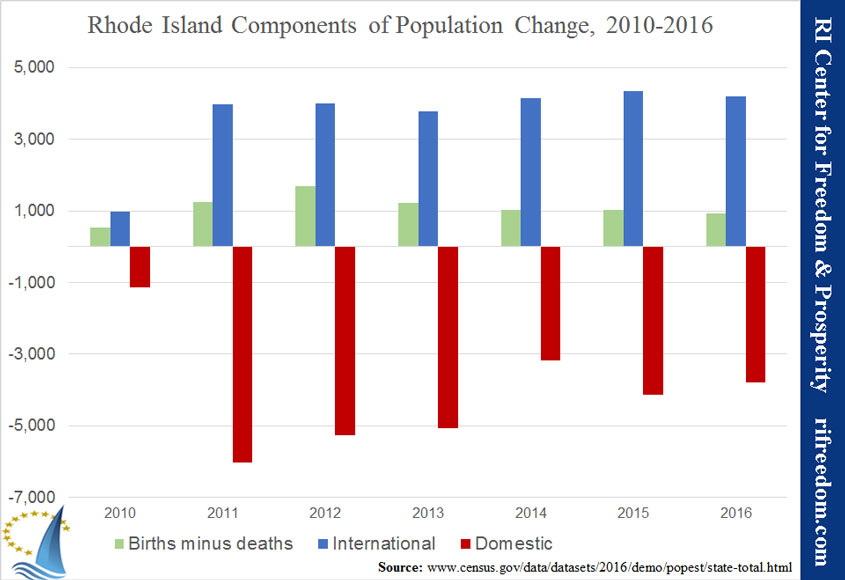Social Dynamism in Government Policy
A Wall Street Journal editorial has gotten some attention with the headline, “School Choice Saves Money“:
Using data from a crime and graduation study by Corey DeAngelis and Patrick Wolf at the University of Arkansas, the Milwaukee study finds that through 2035 Wisconsin will receive a $473 million benefit from higher graduation rates by choice students. More education translates into higher incomes, more tax revenue and a lower likelihood of reliance on government welfare or other payments. Meanwhile, greater economic opportunity also prevents young adults from turning to crime, which the study estimates will save Wisconsin $1.7 million from fewer misdemeanors and $24 million from fewer felonies over the same 20 years.
Some years back the RI Center for Freedom & Prosperity had a victory, in our view, pushing dynamic scoring into the legislative debate with our proposal to eliminate the state sales tax. Dynamic scoring means that one considers the economic effects of a policy and subtracts the increased tax revenue from the policy’s “static” (“sticker,” or first-order) cost. The above paragraph reminds us that there is a social dynamism, too, reducing the need for government services as well as increasing the tax take from a healthier economy.
Obviously, this has perverse relevance to Rhode Island’s “government plantation,” which might gain back some lost tax revenue but lose clients and political leverage over them.
But imagine if we had policies that kept kids engaged in good schools (through school choice) and gave them opportunities for more entry-level jobs (through a lower minimum wage and reduced licensing requirements). It might just reduce the cost of paying government to mitigate social problems, create an environment of entrepreneurship, and turn our state around.
Of course, it would require us to shift away from the government plantation, so it won’t happen.

